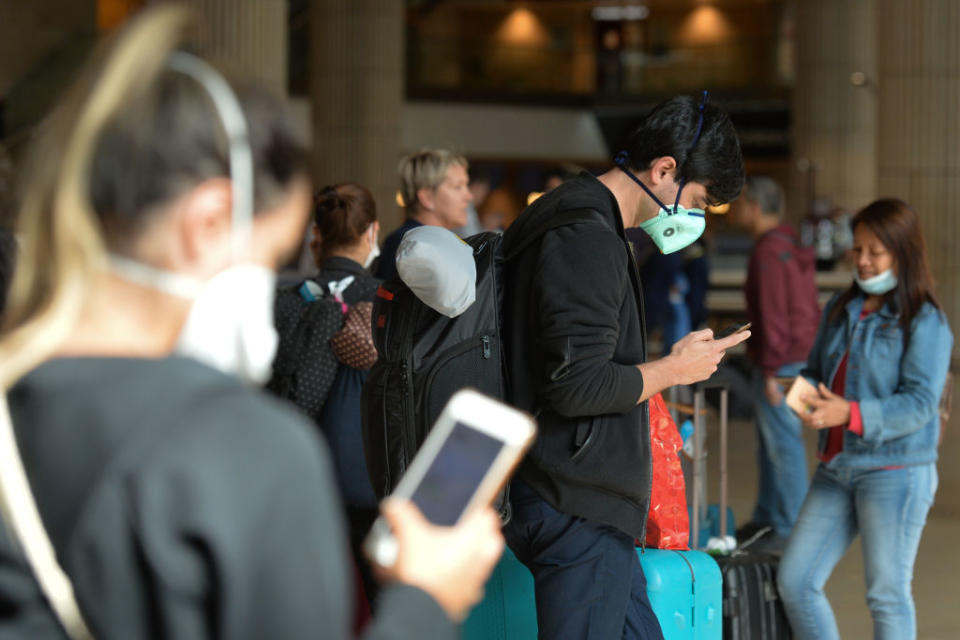Devil's in the details: Your coronavirus travel insurance guide

Many people who have booked an overseas trip will be wondering whether they should be travelling in light of COVID-19, the disease commonly known as Coronavirus.
A big part of this decision may hinge on whether travel insurance will cover them if they cancel their trip or if they travel, will they be covered for COVID-19.
A travel staple is to not leave Australia without travel insurance. There are all sorts of costs if something goes wrong overseas – lost baggage, missing cash, forfeited prepaid accommodation and flights, or medical expenses arising from illness or injury.
By far the major cost is the last; medical costs can be massive if you need extended hospitalisation, surgery or medical evacuation.
This guide is a good starting point to understanding the implications of COVID-19 when it comes to travel insurance.
Where to find the policy definitions most specific to cover for COVID-19
There are three main topics to explore in your travel insurance policy and product disclosure statement (often referred to as a PDS) that will help you understand your level of cover against COVID-19. They are the sections that relate to epidemic or pandemic, overseas travel warnings and the “known event” clause.
‘Epidemic’, ‘pandemic’: How travel insurance policies define this varies widely
Canstar has over 260 travel insurance policies on its website, and many of these have varying approaches to cover for pandemic and epidemic.
Some policies will cover medical costs overseas, but not cancellation costs or loss of deposits, and the like. Other policies will cover both medical and cancellation costs overseas. However, there are policies that exclude epidemic and pandemic altogether – meaning you won’t have cover for medical or cancellation.
To see if you’re covered for epidemic or pandemic, you can search your policy or PDS for epidemic or pandemic as insurers tend to exclude both or cover both.
Travel warnings can determine whether you have cover
Your policy can cover costs of cancellation of your travel for a number of reasons such as a death in the family, serious illness, etc. However, if you wish to cancel your trip because you are worried about COVID-19, depending on your insurer you may be covered if the Department of Foreign Affairs and Trade (DFAT) has declared a “Do not travel” warning for the country or region you are visiting.
What’s more if DFAT has issued a “Do not travel” warning and you do travel to that place, your travel insurance will not cover you.
Lower level warnings, like “Reconsider your need to travel” should not be taken lightly. Some insurers won’t cover you if you travel against a “Reconsider your need to travel” warning so it’s important to check your cover with your insurer if you see this warning and still intend to travel.
To see the current travel warnings, refer to SmartTraveller.
“Known events” clauses mean that the time you take out insurance matters
Most policies have a “known events” clause, which means that if the event is already a known risk when the policy is taken out, you will not be covered.
For Hubei province in China most insurers are setting 20 January 2020 as known event date, which means if you didn’t get cover before this date and still intend or have travelled then you are unlikely to be covered. For elsewhere in China and the rest of the world the known event date is generally 31 January 2020. However, there can be some variation amongst insurers so it’s important to ask your insurer their known event date for Covid-19.
What to do if you plan to travel and don’t already have travel insurance
If you didn’t purchase travel insurance before the known event day of 31 January 2020 then you’re unlikely to get cover if you still plan to travel.
However, if you haven’t taken out cover and you are thinking about canceling your trip, you could consider a special add-on cover known as Cancel For Any Reason cover. This type of cover is only available from a small number of Australian travel insurance providers, as an add-on at the time of purchase and has stringent guidelines. One of the guidelines is that cover must be taken out within a tight timeframe of booking or payment.
Keep in mind that even if you’re not able to get cover for COVID-19, you should still consider getting travel insurance to protect you from events unrelated to coronavirus.
What to look for when buying travel insurance
Even if you can’t get coverage for COVID-19 now, travel insurance covers a multitude of risks when travelling overseas.
Take out cover when you spend money on flights or accommodation so that you’re covered if a known event arises between the time you booked and the time you travel.
Read the policy and PDF and satisfy yourself that you have the cover you are after, and if in doubt phone the insurer before you purchase the policy.
The price of insurance matters but you have to make sure the policy covers you adequately. Shop around!
Steve Mickenbecker is the finance expert at Australian financial comparison site Canstar.
Make your money work with Yahoo Finance’s daily newsletter. Sign up here and stay on top of the latest money, news and tech news.
Follow Yahoo Finance Australia on Facebook, Twitter, Instagram and LinkedIn.

 Yahoo Finance
Yahoo Finance 